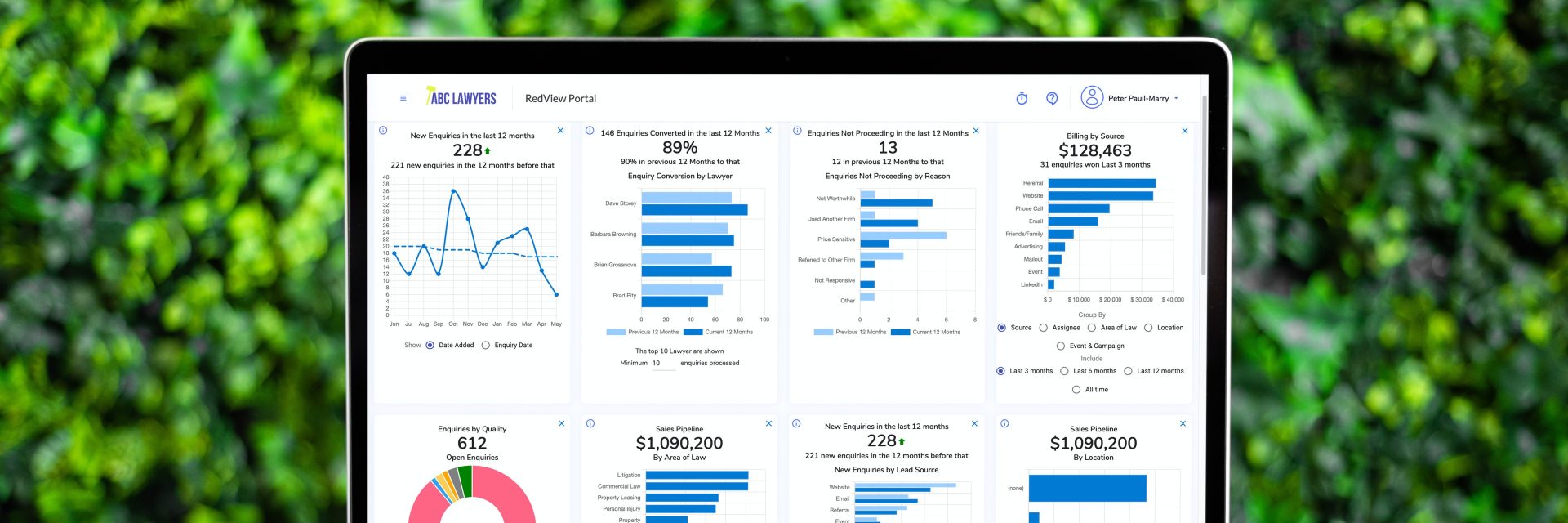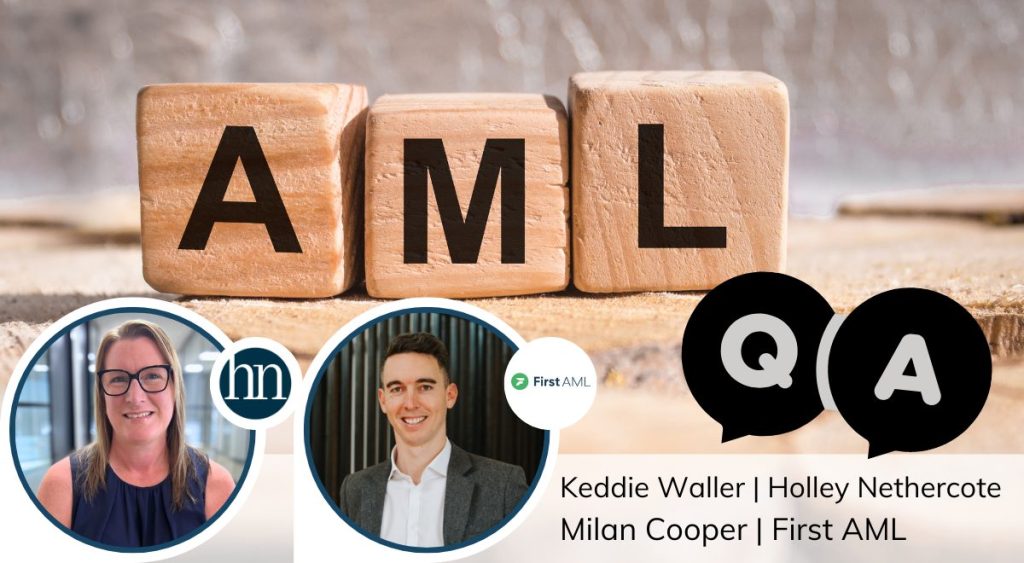You wouldn’t manage your practice without information to base your decisions on, shouldn’t you manage your business development investment using the same approach?
Another Reason Why Your Law Firm Needs a CRM
Winning new clients is hard. The profession is competitive and getting your story in front of potential clients costs money. You want to know what you are getting for that spend and where to re-direct the money if you are not getting the return you expect.
Data, Data, Data
Key here is capturing data. You wouldn’t manage your practice without information to base your decisions on, shouldn’t you manage your business development investment using the same approach?
You can learn a lot just by capturing 8 simple pieces of information with all your leads:
- When did it come in?
- Where did it come from?
- What it is it for?
- Who is going to look after it?
- What did that lawyer do? Even if it’s just the first time they called back
- Did the lead become a client?
- If not, why not?
If you can also capture estimated fees for the potential matter and how promising the enquiry seems, the data becomes even more powerful.
For some, gathering this information might seem difficult. And that’s where a legal CRM comes in – provides tools to easily capture and manage this information on the fly. Sure, you can use Excel, but collecting the data simply and effectively is the issue. A good CRM makes it easy for lawyers and staff to manage the lead. In doing so, quality data is collected and stored efficiently.
Once in a database, a smart CRM can give you a dashboard of analytics where you can see the performance of your business development efforts, at a glance.
So, exactly what can you learn from the data?
It’s All About the Leads
Knowing the date a lead came in can tell you if your lead generation processes are trending up, trending down, staying the same, or if there is seasonality.
You just spent a lot on a marketing campaign—shouldn’t you be seeing more leads? A good CRM lets you see that visually at the click of a button.
Where are your leads coming from?
- You have a website contact form—are people using it? If not, and you want them to, why not? Is your content good enough to keep potential clients on the site? Is your contact form too hidden? Should you be reviewing your digital marketing strategy—investing more or less?
- You just ran an event; how many opportunities arose? Did you get what you wanted for the spend? If not, what can you do better?
- Who is referring you potential clients? How many of those referrals turn into clients? Are they just flicking you people to get them out of their hair? Or are they great leads? Which referrers do you really need to look after well?
- What about existing clients? How many clients are returning for more work?
Next, what type of work is coming in and why?
- Maybe you’re getting a lot of wills & estates matters—is this because your marketing approach is paying off, or something else?
- The property market is hot right now—why aren’t you seeing more conveyancing work?
Combine that information with the date the enquiry came in, and you can see change: leads from the website have dropped over the last 6 months compared to the 6 months before that. Why are you getting more employment enquiries compared to the previous period?
With a good legal CRM dashboard, you can see all this instantly.
What About Your People and Processes?
If you track when your firm first responded to the lead and when the lead first came in, you see how efficient your team are at following up.
Why is that important? It’s Sales 101: the early bird has a bigger chance of catching the worm. These dates allow you to calculate on average, how quickly people are reacting to new enquiries. Who in your team is acting fast, and who takes their time (probably because they aren’t that interested!).
Then, how are you performing? Working out the conversion rate is easy: clients won vs. clients lost. But who are the people best at winning new clients, and who are not so good? If you can understand this, you can take steps to correct imbalances. You can mentor those who need improvement or maybe take them out of the loop completely if that’s not their forte. No use forcing someone to do a job they are not comfortable with—use their strengths elsewhere.
And why are you losing enquiries? Are you too expensive? Was there no case in the first place? Did the lead go to a competitor? Maybe they aren’t the kind of clients you want anyway!
By tracking the reasons why leads don’t proceed and then aggregating that information, you’re able to make informed decisions. You’re able to work out how you should be presenting yourself to the market. If you’re getting enquiries for services you don’t provide, you probably need to consider changing your messaging on your website.
Is your pricing right? Lots of people saying you’re too expensive may suggest it isn’t. Or it could be you aren’t attracting the right clientele!
Say, for instance, you’re handling unfair dismissal claims and a lot of people are approaching you that really don’t have a case. Introducing a qualifying questionnaire as part of your processes may save you a lot of time.
And if you are referring work out to others, you can keep track of how many opportunities you’re sending to associates! This could give you some leverage in the future.
A good legal CRM dashboard will tell you all this easily.
Want to Get More Sophisticated?
If you can capture the estimated fees for the enquiry—it doesn’t have to be exact, in fact, it could be a default “ballpark” amount based on the type of work – you can use the amounts as part of the assessment process.
Then give the enquiry a rating: 1 star for tyre kickers, 5-stars for informed and interested! The opportunity might have a big fee, but if they aren’t serious, then maybe they’re not worth a lot of attention.
With this data and some simple mathematics, you can start to develop a clear picture of the kind of fees that you might be expecting in the near future.
This is called a sales pipeline and is a fantastic early indicator of future business for the firm. A good CRM will give you this at the click of a button and then break it down by type of work, lawyer and location.
Where Technology Can Help
Having a CRM to track new enquiries is essential if you have any sort of volume. It allows you to easily capture and manage the above data and much more!
Once the data is in a central database, it can be managed and reported upon. Insights can be gleaned fast, and a performance dashboard allows you to see trends and exceptions in seconds.
For all these reasons and more, good legal CRMs are indispensable in the modern legal landscape. Rest assured that your competitors will be using one to leverage their position in the market. Don’t give them that advantage.





